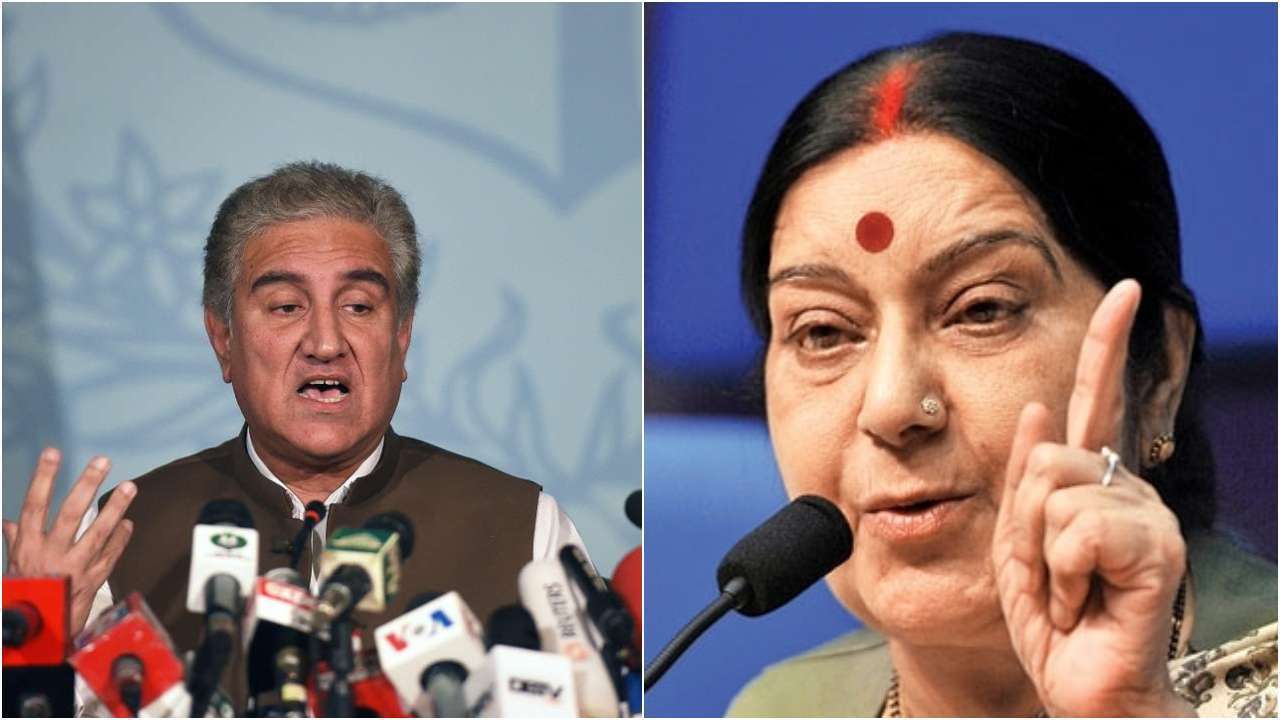
The glimmer of hope that Pakistan would return to the path of peace is dying a quick death. As soon as the government made the announcement to call off the meeting between External Affairs Minister Sushma Swaraj and her Pakistani counterpart Shah Mehmood Qureshi in New York next week, to be held on the sidelines of the UN General Assembly. Many interpreted the meeting on the sidelines as a dialogue or the beginning of one. They were surprised at the announcement to discontinue them.
On September 20, at a weekly media briefing, the Ministry of External Affairs’ official spokesperson Raveesh Kumar said, “I can confirm that on the request of the Pakistani side, a meeting between the External Affairs Minister and Pakistani Foreign Minister will take place on the sidelines of the United Nations General Assembly at a mutually convenient date and time.” He also said it is a meeting where the agenda has also not been decided. On the same day when the official transcript of this briefing was released, on September 21, came another statement, saying, “In view of the changed situation, there will be no meeting between the foreign ministers of India and Pakistan in New York.”
This change of stance within 24 hours took certain people aback, indicating that various other arms of the government had not been consulted at the time of accepting Pakistan Prime Minister Imran Khan’s offer. It also helped in giving Pakistan an upper hand in the narrative, that it was asking for a dialogue and Indian side does not want to talk. Pakistan has perfected posturing for its domestic and international audiences. Diplomats demand considerable discipline in messaging besides keeping it in sync with the pursuit of long-term national interests.
In the case of Pakistan, there is a military as well as political angle involved. All of these lead to demanding a verifiable commitment from Islamabad to end cross-border terrorism. Looking at the joint statements India has signed across the globe with various countries, it looks as if the world at large has been buying India’s argument that talks and terrorism cannot go together. The mutilation of an BSF soldier led the Indian Army chief to issue a strident warning to Pakistan about a response, after the meeting was called off.
Meanwhile, the government is also getting into the swing, with Assembly elections later this year followed by general elections next year, and any sign of weakness with Pakistan may not be acceptable to the general population. Till June, there have been 1,724 ceasefire violations — the most in eight years, along the International Border (IB) and the Line of Control (LoC). To top it all, the law and order situation is showing no let up in Kashmir. No doubt security forces have achieved major successes against militants by killing their top commanders but it has come at a heavy price. As troops are hunting down militants, new recruits are joining them in sizeable numbers.
In order to safeguard the lives of the people living on the border, the government has again started constructing bunkers and community shelters, as was the practice prior to the 2003 Indo-Pak ceasefire. In Rajouri district alone, the government has initiated the process for construction of more than 5,500 bunkers and 200 community halls as well as Border Bhawans at an estimated cost of Rs 153.60 crore. Keeping all these factors in view, accepting the offer of talks under these circumstances was ill timed, and calling it off within 24 hours gave a message that all arms in the government are not in tune on Pakistan policy.
Following the cancellation of the meeting, the Pakistan prime minister tried to take the upper hand, but his term “small men in big offices” for the Indian leadership may come back to haunt him. The language used by the Pakistan Prime Minister seems to have closed all diplomatic doors for now. Language is everything in diplomacy, a loose interpretation, a misplaced word, can change the contours of a carefully created narrative. Imran Khan does not realise that the heckling of cricket grounds do not work in international relationships. With the bilateral meeting now standing cancelled, the stage is set for foreign ministers and officials to verbally attack each other at the UNGA.
While it is now difficult to envisage any immediate engagement between the two countries, both countries need to activate back-channels to maintain contact. For this, contact between the countries’ National Security Advisers is the call of the day. For Khan, he needs to appoint a credible person as the NSA who will also work to maintain military-to-military contacts, particularly in matters pertaining to peace along the LoC. Both countries must realise that in the longer run, there is no escape from dialogue but to reach to that point it is necessary to prepare an agenda and plan it through back channels, before going to the public.